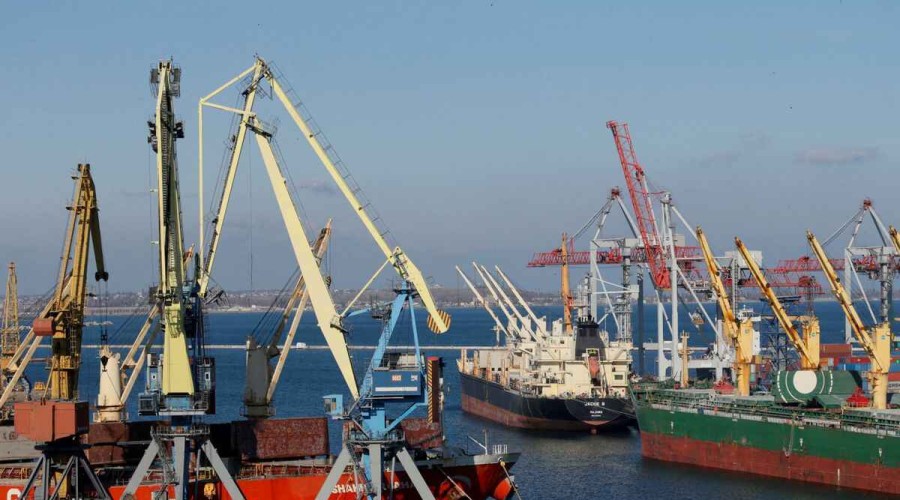Thousands of goods railcars stuck at Ukraine’s border as war hits exports
The Kremlin didn’t respond to a request for comment

In western Ukraine, some 1,100 train wagons carrying grain are stuck near the main rail border crossing with Poland, unable to transport their cargo abroad.
They are just some of the 24,190 wagons carrying various goods for export, including vegetable oil, iron ore, metals, chemicals and coal, that were waiting to cross Ukraine’s Western border as of Tuesday, according to data from the state-run railway company that hasn’t previously been reported, Qazet.az informs.
With war raging along the country’s southern coast, and its main ports blocked off by Russia's invasion, Ukraine is struggling to export its grain and other goods, according to government officials and industry insiders. But as Kyiv looks for alternative export routes by land, that effort has been hampered by logistical challenges and red tape, industry officials and commodity traders say.
Valerii Tkachov, deputy director of the commercial department at the state-run railway company Ukrzaliznytsia, said that 10,320 wagons - or about half of the total - are waiting at the junction near the village of Izov, the main rail border crossing into Poland. Sitting some 130 kilometres north of Lviv, the junction serves as a gateway for reaching the Polish seaport of Gdansk.
One key issue: the sheer volume of goods that needs to find an alternate route, which is causing shortages of everything from rail cars to staff, according to industry insiders and the government. Ukraine, one of the world’s biggest grain exporters, had prior to the war exported 98% of its cereals via the Black Sea. Typically, only a fraction of the country’s exports went by rail, where transport costs are higher than shipping.
Those difficulties are being compounded by logistical issues, such as differences in rail-track gauges used in Ukraine and neighbours such as Poland - a legacy from when Ukraine was part of the Soviet Union. While the west of the country has been spared by the worst fighting, there have been missile strikes near Lviv, including on oil facilities, and security around the border is very tight.
The disruptions to Ukraine’s exports mean that countries that rely on imports of Ukrainian grain - including China, Egypt, Turkey and Indonesia - will need to find alternative supplies or face food shortages, aid agencies have warned.
Russia’s Feb. 24 invasion of Ukraine has heightened concerns about global food security, sending prices of global grain, fertilizer and fuel soaring. Global food prices have been rising since mid-2020 due to disruption to planting and harvest in many countries during the first year of the COVID-19 pandemic, and later due to supply chain problems.
Even as Russia scales down operations around Kyiv and the northern region of Chernihiv to focus on battles in the east, the prolonged blockade of ports in the south is dealing a major blow to Ukraine. Grain exports are a cornerstone of Ukraine’s economy - totalling about $12.2 billion in 2021 and accounting for nearly a fifth of all the country’s exports, according to official data.
The Ukrainian government didn’t respond to a request for comment. Ukraine has said that grain exports last month fell to a tenth of the figure of March 2021 amid port closures and that the disruption impacts people in many countries. “Hundreds of millions of people around the world will not receive food unless Russia's blockade of Ukrainian ports is lifted in the near future,” the agriculture ministry said in an April 1 statement.
Russia launched what it calls a "special military operation" in Ukraine, aiming to demilitarise and "denazify" Ukraine. Ukraine and the West say the invasion was illegal and unjustified.
The Kremlin didn’t respond to a request for comment. Russia has denied deliberately targeting civilians and civil infrastructure, despite documented attacks on hospitals, apartment buildings and railroads.
Ukrainian farmers - who produced a record grain crop last year - say their wheat yields could be cut in half, and perhaps more. Russian forces are repeatedly damaging grain storage facilities in eastern Ukraine, a U.S. official has said. Kyiv and Moscow have accused each other of laying mines in the Black Sea creating dangers for merchant shipping
